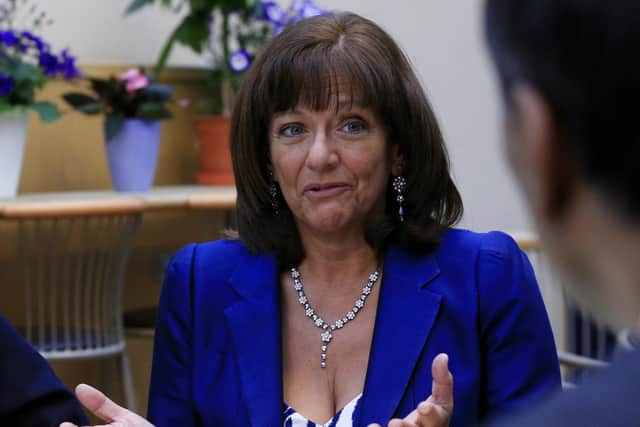Pensioners should beware unexpected tax liability or risk fines - Ros Altmann
In 2010, some 4.5million pensioners were liable for tax. Many were still working or had generous private pensions. The subsequent rises in State Pension are welcome but, coupled with the frozen personal tax threshold since 2021/22, this means more risk of tax liability for pensioners, especially as the previous higher tax threshold for pensioners was removed in 2013.
HMRC estimates 8.5million pensioners were liable for tax last year, and the 8.5 per cent State Pension rise from April 2024 is likely to increase the numbers of pensioner taxpayers to over nine million – more than doubling since 2010.
Advertisement
Hide AdAdvertisement
Hide AdThe full new state pension – at £11,502 for 2024/25 – has now reached 92 per cent of the £12,570 personal tax threshold. The full old Basic State Pension is rising to £8,814 a year which is 70 per cent of the personal tax threshold, but millions of older pensioners also accrued additional State Pensions – to add to the Basic State Pension, so just a small amount of extra income either from other pensions or savings, will tip more into tax liabilities.


However, many may have no idea they need to pay tax at all, especially if they have never been liable before.
Most of those tipped into tax will be poorer pensioners with little more than their state pension to live on. Most of them will be totally unaware of any liability and will probably never have filled in a tax return in their life. They are then at risk of being hit with fines and penalties for not paying a tiny amount of tax that they didn't even know about.
Pensioners who are married or in civil partnership, who give part of their personal allowance to their partner by using the ‘marriage allowance’ will have an even lower personal allowance of just £11,310, rather than £12,570. They are already at risk of being liable for small amounts of tax without knowing.
Advertisement
Hide AdAdvertisement
Hide AdWhat can be done? There are actions the Government could take to help alleviate the distress being caused to many pensioners who are already receiving penalty notices after failing to file a tax return they never knew was due.
Firstly, it could raise the personal tax threshold in line with inflation: obviously, an increase in the personal tax threshold, which was frozen in 2021/22 and is not due to rise again till after 2025/26, would alleviate some of the pressure, especially as inflation has been so high in the past couple of years.
Secondly, warn pensioners clearly when they receive their State Pension that they need to check their tax position: DWP should send out clear notification to everyone receiving State Pension notification letters, warning them that they should check their tax position and DWP/HMRC should consider national advertising and a media campaign. HMRC should also ensure that it has sufficient capacity in its helplines to cope with queries from worried pensioners who will not know what to do about paying the tax.
And thirdly, there needs to be proper liaison between HMRC and the DWP. Pensioners could receive notification of the expected tax liability they may face.
Advertisement
Hide AdAdvertisement
Hide AdThe tax system is already far too complicated. Careful reform could alleviate some of the social problems, either by better liaison between HMRC and other Government Departments but also by ensuring that people can pay any tax due easily and that they know what their responsibilities will be. Currently, this is not happening.
Baroness Ros Altmann is a British life peer and former pensions minister.
Comment Guidelines
National World encourages reader discussion on our stories. User feedback, insights and back-and-forth exchanges add a rich layer of context to reporting. Please review our Community Guidelines before commenting.